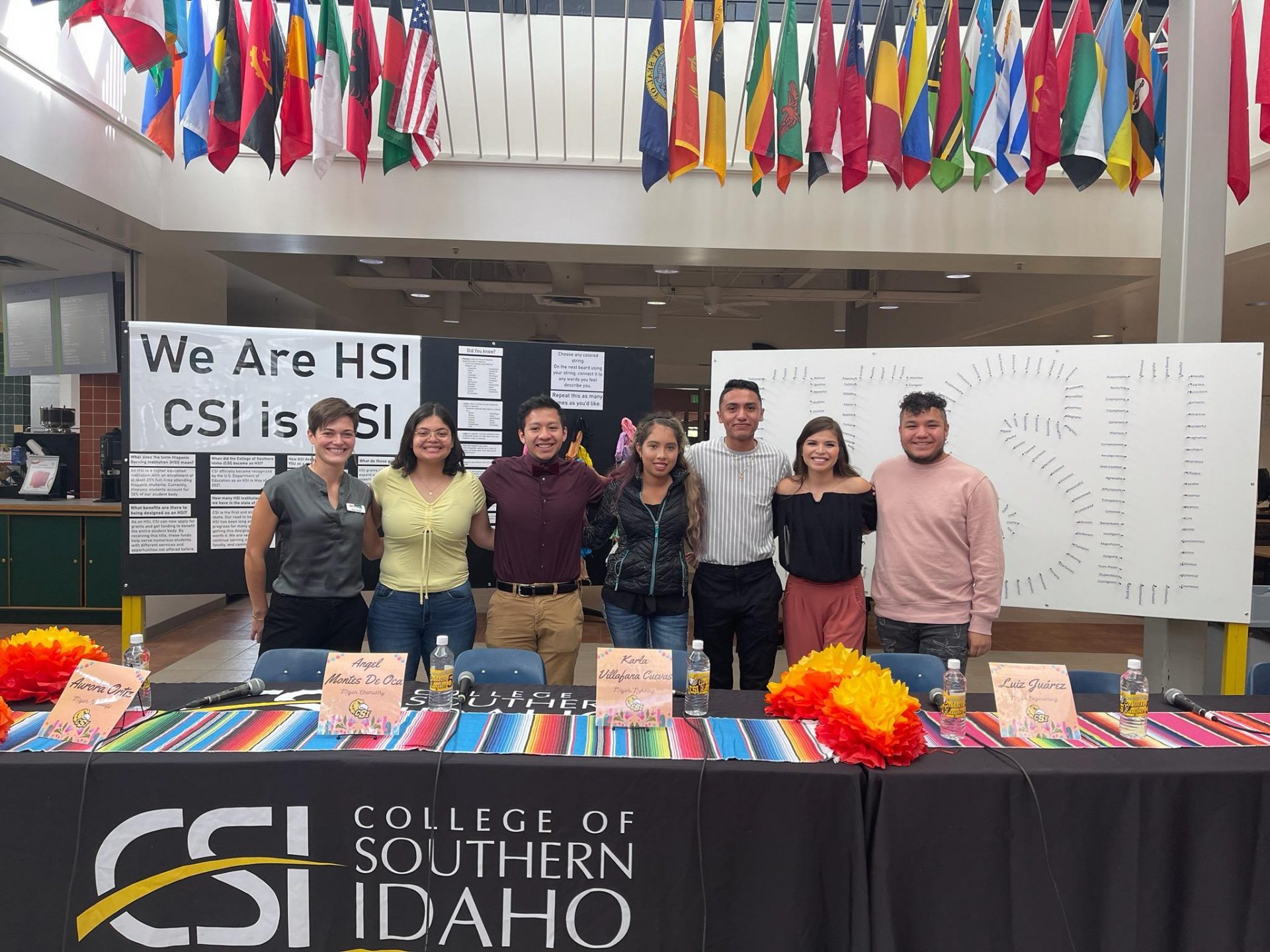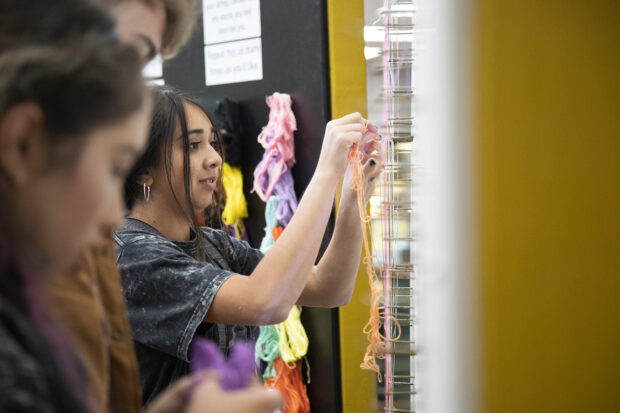
The College of Southern Idaho hosted a number of events on Monday, to kick off a weeklong celebration of the school’s designation as a Hispanic Serving Institution. The school is Idaho’s first college or university to receive that designation, for schools where Hispanic students comprise at least 25% of the population.
As part of the day’s events, Idaho Education News’ Sami Edge moderated a panel discussion with CSI Hispanic students, to talk about their experiences with the Idaho education system and share their recommendations for how CSI and other colleges can best serve Hispanic youth.
Here is a bit of what they had to say, edited for clarity and brevity:
Edge: What has your experience been like as a Hispanic student in the Magic Valley, and at CSI?
Luiz Juárez, an engineering student from Oakley: Being Hispanic in the College of Southern Idaho has been a good experience so far. A lot of the staff that I work with are of Hispanic origin, so I feel that connection with them. As far as actual faculty, there’s not the same connection, just because they’re of other backgrounds. You don’t have that same connection in the classroom.
Edge: How does your cultural identity inform your approach to education, and your educational experiences so far?
Aurora Ortiz, from American Falls, who is a double-major in sociology and criminal justice: A part of my identity is that my mom is always telling me that she’s making sacrifices so I can have a better life than she does. I feel like that’s the same for a lot of immigrants. That’s what makes me want to work hard and push myself, so I don’t disappoint her and the expectations that she has for me.
Edge: Who influenced your decision to come to college?
Valeria Cardona López, born in Guanajuato, Mex., who is studying surgical technology:
My parents both kept pushing me to go to college because they know what it means to not have an education. They always wanted me to pursue what I wanted to do … they’ve always been supportive; they’ve always pushed me and they’re there if I need them.
Rigo Acevedo, from Wendell, who is studying health science: The thing that keeps me going is showing my siblings that education is important, and being a good role model for them.
Edge: What barriers did you encounter enrolling in, or affording college?
Aurora: My biggest barrier was not knowing what to do. My mom didn’t go to college, I feel like I was on my own trying to figure out where I should apply, and what the deadlines are.
Edge: How could high schools help prepare Hispanic, first-generation students who might have these questions?
Luiz: Having panels like these. Having Hispanic students who are in higher education going to high schools and asking these questions that maybe (students) are too intimated to ask, so maybe we can give a personal insight into what (college) is like, and what we’ve gone through, and possible insights… so they can better succeed in higher education.

Edge: Do you feel you’re pulled between two cultures?
Angel Montes De Oca, from Twin Falls, studying chemistry: I’d say so. Here at school I’m a completely different person than at home. At home I speak more Spanish to my mom and my siblings. Here I speak a lot of English. I have a lot of friends from different cultures, some similar, but at the end of the day my cultural background at my house is different than it is here at the College of Southern Idaho.
Edge: How can CSI best serve, or better serve, Hispanic students?
Valeria: Faculty could do some more work into understanding Hispanic students, just because they don’t understand what we go through. It’s not just like oh we show up to school for class and then that’s it. We have other responsibilities. For some of us, we have to help our parents out because they don’t know English as much. I have to schedule appointments for my parents, or even sometimes go (with them) because they don’t have those bilingual resources. I have all that on top of my school work… there are some staff that don’t understand it, and are really very strict about it.
Karla Villafana, from American Falls, studying health science: Something I struggled with last year was… you go to college and they expect you to know so much (English). That’s something that’s a daily struggle. I feel like I don’t know as much English, or my vocabulary isn’t as big as I would like it to be… I struggle to ask (for help) because I don’t know exactly how to word it and I don’t know what type of help I should ask for.
